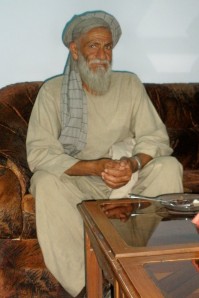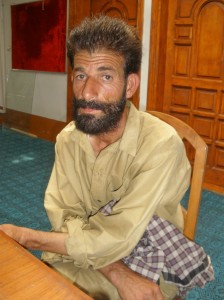Posted By: Rebecca W., Erica in Afghanistan
It was 2am when the aerial bombardment started. Ahmed described to me, in an interview in the Afghanistan Independent Human Rights Commission (AIHRC) office in Kandahar, how he and has family huddled together behind a wall. “We said that if we were going to die, we would die together.” The bombing by ISAF troops continued for two hours. Nine of Ahmed’s neighbors died and eleven civilians were injured, including three of Ahmed’s family members: his mother and his two brothers.
When the bombing finally ended, Ahmed grabbed his family members, found a bus and sent them to Kandahar city. He and his neighbors then tried to get the badly injured and dying to a hospital. In one of the houses, five family members were dead. The head of this household pulled his son from the rubble. His son was crying, saying “I’m cold, I’m so cold.” Ahmed found a blanket and put it over the boy, but he died not long afterwards.
The coalition troops had been told that the Taliban were hiding in Ahmed’s village. This is why the bombing had targeted near these civilian homes. But Ahmed told me that when the land troops came after the air strike, they found no Taliban and only civilians. The foreign troops therefore promised to compensate Ahmed and his neighbors. But they said that they would pay only for the dead and not for the livestock and land that had been lost. Continue reading
Filed under: Afghanistan, Erica, Guest Blogger, Photos, Rebecca W. | Tagged: accident, Afghanistan, aid, air strike, airstrike, army, assistance, bomb, bombing, bombs, civilian casualties, coalition, coalition forces, coalition troops, conflict, current events, family, human rights, humanitarian, Interview, ISAF, Kandahar, military, Nato, news, non-profit, peace, Taleban, Taliban, troops, War | Leave a comment »




You must be logged in to post a comment.